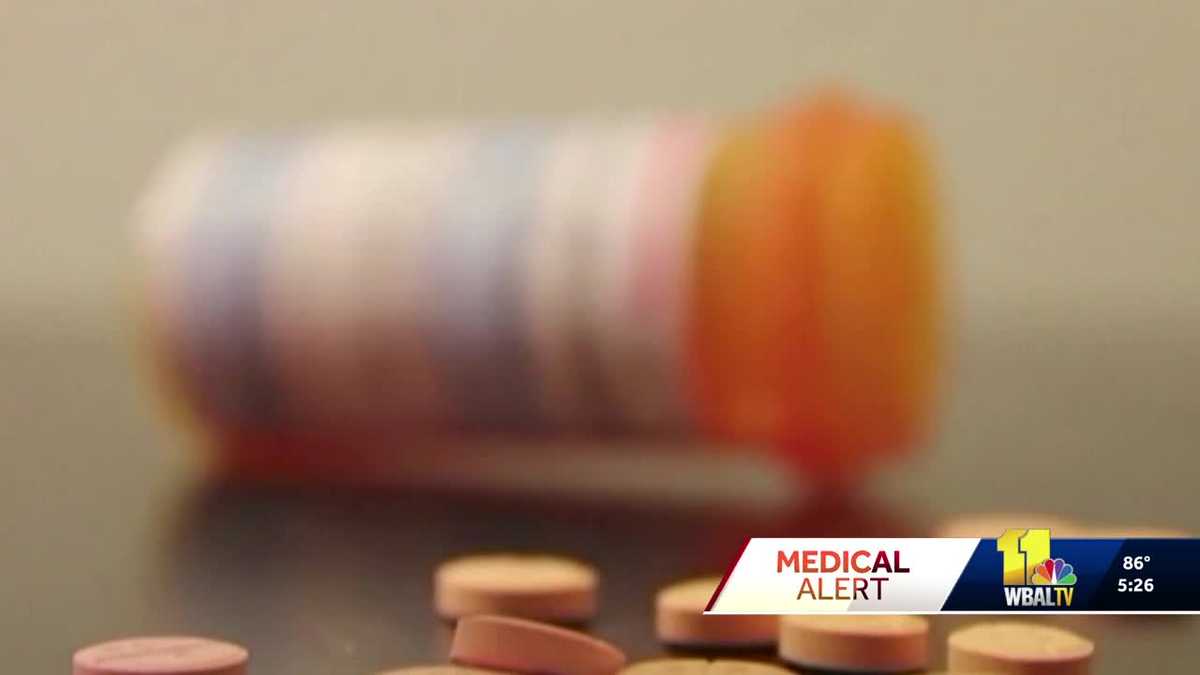MUCH OF THE BRANDED MEDICATIONS THAT WE USE ARE MANUFACTURED OVERSEAS. SO WHAT DO TARIFFS MEAN FOR OUR DRUG PRICES RIGHT NOW? NAME BRAND MEDICATIONS MAKE UP 15% OF ALL U.S. PRESCRIPTIONS. AND MOST PEOPLE MAKE GENERIC DRUGS. THEY’RE JUST CHEAPER. OVER THE PAST 20 YEARS, MANUFACTURING HAS SHIFTED OVERSEAS, AND THE THREE COUNTRIES RESPONSIBLE FOR THE MOST IMPORTS IN THE U.S. ARE SWITZERLAND, IRELAND AND GERMANY. THAT’S DUE TO TAX POLICY. BUT GENERIC DRUG MANUFACTURERS LIKE INDIA COULD ALSO SEE TARIFFS ON THEIR PRODUCTS, AND THAT COULD BE FELT BY A MAJORITY OF AMERICANS. ONE OF THE PROBLEMS OF TARIFFS ON GENERIC PRODUCTS IS NOT NECESSARILY HIGH PRICES, WHICH COULD ALSO HAPPEN, BUT ALSO MANUFACTURING QUALITY PROBLEMS FROM POSSIBLE FROM THE POSSIBILITY THAT MANUFACTURERS MAY WANT TO CUT CORNERS AND SEND LOWER QUALITY PRODUCTS OR CHEAPER PRODUCTS, EVEN TO US, AND DISRUPTING OUR SUPPLY. RIGHT NOW, EXPERTS AREN’T SEEING ANY MAJOR CHANGES TO DRUG PRICES OVER THESE CURRENT TARIFFS, BUT THIS COULD BE FELT LATER. THE PATIENT HAS A COPAY, A FIXED DOLLAR COPAY, LET’S SAY A $5 OR A $10 COPAY. THAT PATIENT MAY NOT FEEL THE CHANGE IN PRICE. HOWEVER, THE CHANGE IN PRICE WILL HAVE TO BE ABSORBED BY THE INSURANCE COMPANY, AND IN THE NEXT YEAR, PREMIUMS MAY GO UP. JOHNS HOPKINS EXPERTS SAY THEY’RE CURRENTLY SEEING AN INCREASED NUMBER OF BRAND NAME DRUG IMPORTS. THAT’S TO T
Tariffs on some prescription medications manufactured overseas could impact prices for Americans

Updated: 5:31 PM EDT Jun 11, 2025
U.S. tariffs on some prescription medications manufactured overseas could impact prices for Americans, experts at the Johns Hopkins Bloomberg School of Public Health said Wednesday.Experts said name-brand medications make up about 15% of all U.S. prescriptions. While many Americans take generic drugs drug manufacturing has shifted overseas over the past 20 years.Three countries responsible for the most U.S. prescription medication imports are Switzerland, Ireland and Germany, all due to tax policy.But generic drug manufacturers, like those in India, could also see tariffs on their products, and that impact could be felt by a majority of Americans.”One of the problems of tariffs on generic products is not necessarily high prices, which could also happen, but also (there could be) manufacturing quality problems from the possibility that manufacturers want to cut corners and send lower quality products and cheaper products even to us, disrupting our supply,” said Dr. Mariana Socal, an associate professor at the Johns Hopkins Bloomberg School of Public Health.Experts said they aren’t seeing any major changes to drug prices over the current tariffs, but that the impact could be felt later.”The patient has a co-pay, let’s say a $5, or a $10 co-pay, that patient may not feel a change in price; however, the changing prices will have to be absorbed by the insurance company, and in the next year, premiums may go up,” Socal said.Johns Hopkins experts said they’re seeing an increased number of brand-name drug imports to try to offset the impact of potential tariffs.
BALTIMORE —
U.S. tariffs on some prescription medications manufactured overseas could impact prices for Americans, experts at the Johns Hopkins Bloomberg School of Public Health said Wednesday.
Experts said name-brand medications make up about 15% of all U.S. prescriptions. While many Americans take generic drugs drug manufacturing has shifted overseas over the past 20 years.
Three countries responsible for the most U.S. prescription medication imports are Switzerland, Ireland and Germany, all due to tax policy.
But generic drug manufacturers, like those in India, could also see tariffs on their products, and that impact could be felt by a majority of Americans.
“One of the problems of tariffs on generic products is not necessarily high prices, which could also happen, but also (there could be) manufacturing quality problems from the possibility that manufacturers want to cut corners and send lower quality products and cheaper products even to us, disrupting our supply,” said Dr. Mariana Socal, an associate professor at the Johns Hopkins Bloomberg School of Public Health.
Experts said they aren’t seeing any major changes to drug prices over the current tariffs, but that the impact could be felt later.
“The patient has a co-pay, let’s say a $5, or a $10 co-pay, that patient may not feel a change in price; however, the changing prices will have to be absorbed by the insurance company, and in the next year, premiums may go up,” Socal said.
Johns Hopkins experts said they’re seeing an increased number of brand-name drug imports to try to offset the impact of potential tariffs.
